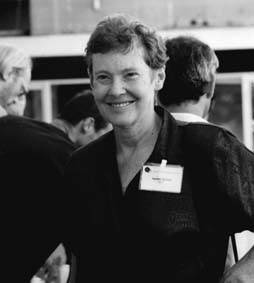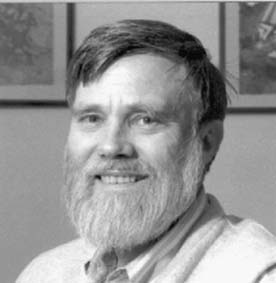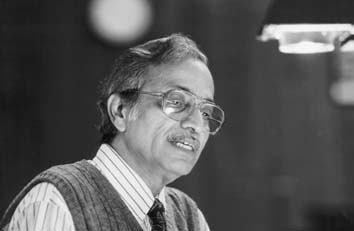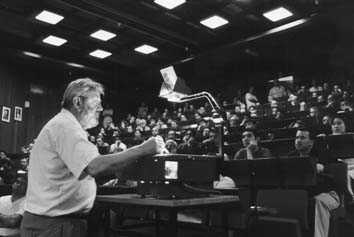Personal tools
News from ICTP 94 - Dateline




For the first time in the 15-year history of ICTP's Dirac Medal,
the selection committee has chosen a woman as one of the medallists.
Helen Quinn, staff scientist in theoretical physics at
the Stanford Linear Accelerator Center, Stanford, California,
will share the medal with Howard Georgi, professor of physics
at Harvard University, Cambridge, Massachusetts, and Jogesh
Pati, professor of physics at the University of Maryland,
College Park, Maryland, USA. The announcement was made on 8 August,
the birthday of the famed physicist and Nobel Prize winner Paul
A.M. Dirac, who died in 1984. Dirac was one of the Centre's most
forceful advocates during ICTP's first two decades of existence.
The three scientists are being honoured for their "pioneering
contributions to the quest for a unified theory of quarks and
leptons and the strong, weak and electromagnetic interactions."
Their research tracks the same line of investigation that earned
ICTP's founding director, Abdus Salam, the Nobel Prize in 1979.
Salam shared the prize with Steven Weinberg and Sheldon Glashow
for proposing a theory of unification of nature's electromagnetic
and weak forces. For additional information about the Dirac Medal
and other ICTP awards, click here.
ICTP's Second School on the Mathematics of Economics, held between
21 August and 1 September, included a host of intriguing theories
concerning potential links between studies in theoretical physics
and real-world economic and social patterns of behaviour. A series
of lectures and discussions explored, for example, how game theory
could shed revealing light on financial market volatility, strategic
military planning and decision-making, and efficient airline scheduling.
The most provocative lecture at the school, however, was given
by Jean-Philippe Bouchaud, a condensed matter physicist
from the French Atomic Energy Commission. Bouchaud contended that
he had uncovered a theory explaining why every society, since
the dawn of civilization, has been characterised by a minority
of wealthy people who maintain power in their own hands. He claimed
that the 'wealth and power' profile, revealed time and again in
history books, was replicated in an equation used by physicists
in their studies of disordered systems. Bouchaud's observations
have received extensive coverage in the international press, including
a front-page story in the French daily Le Monde and a feature
article in the weekly magazine New Scientist. One conclusion
drawn in the Le Monde is this: If the rich are always with
us, why not tax them more?
Several ICTP scientists have recently received notice in Science
and Nature. Filippo Giorgi, head, and
Raquel Francisco, staff scientist, ICTP's Weather and Climate
Group, were recently quoted in a Science news article ("Dueling
Models: Future U.S. Climate Uncertain," 23 June 2000, p.
2113) that discusses the findings of the U.S. government report,
"Climate Change Impacts on the United States." The report
assessed the potential impact of global warming on various regions
of the USA based on the output of the best available climate models.
Giorgi and Francisco spoke about the reliability and uncertainty
of climate models, especially at the regional level. Erio Tosatti,
International School for Advanced Studies (SISSA), and consultant
in the ICTP Condensed Matter Physics Group, co-authored a research
article with Santi Prestipino, SISSA and Italian National
Institute for the Physics of Matter (INFM), "Weird Gold Nanowires,"
Science (28 July 2000), p. 561-563. Amos Maritan,
Christian Micheletti and Antonio Trovato, who hold
joint appointments with SISSA and ICTP, co-authored a research
article, "Optimal Shapes of Compact Strings," Nature
(20 July 2000), p. 287-290.
"Theoretical physics requires experimental confirmation.
For this reason, in my opinion, string theory is a sort of intellectual
speculation more than real science. And cosmology is becoming
a sort of religion: It has non-predictive power; it's totally
speculative."
Dutch-born physicist Martinus J.G. Veltman, 69, professor
emeritus at the University of Michigan, Ann Arbor, USA, reaffirmed
his strong convictions at the ICTP on 4 July. He came to the Centre
to receive the Dirac Medal that he was awarded in 1996. Last year,
Veltman was honoured with the Nobel Prize together with his former
student Gerardus 't Hooft.

Veltman is well-known for his pioneering work in the use of a
'theoretical machinery' that permits researchers to predict the
properties of new elementary particles. It's a discovery that
has revolutionised the field. His calculations, for example, provided
the theoretical framework instrumental in the search for the top
quark mass, which was discovered at Fermilab in 1995 within the
exact range of energies forecast by Veltman. The same parallel
track will hopefully be followed in the search for the Higgs particle.
Philip W. Anderson was another Nobel Laureate hosted by
the Centre this past summer. Anderson, now 77, professor emeritus
at Princeton University, is a frequent visitor to ICTP and a member
of the Centre's Scientific Council.

Anderson received the Nobel Prize in 1977 for his studies on the
magnetic properties of non-crystalline solids, permitting the
development of a number of electronic devices. He has been one
of the great innovators in the field of condensed matter physics.
His name, however, has been strictly linked to the history of
complex systems since 1977, when Anderson postulated what has
become a classic article in Science: "More Is Different".
In that article, he formulated his ideas against a reductionist
view that puts the physics of particles at the top in the hierarchy
of sciences. "A vision that has no real meaning", he
explains. "The truth is that we can't derive the properties
of superconductivity or the laws of biology from the behaviour
of elementary particles."
Since 1984, Anderson has been a fellow of the Santa Fe Institute,
New Mexico, USA, a think tank of 'complexologists' that is a meeting
place for physicists, biologists, economists, and anthropologists.
"We are not seeing the end of science, as some critics contend,"
Anderson observes. "Instead, we are living in a strongly
science-based world whose inhabitants ignore basic science. It's
a troubling contradiction."
Tau Neutrino Uncovered...Higgs to Follow?
The tau neutrino, the most elusive particle of the ghostly family
of neutrinos, has been detected at the Fermi National Accelerator
Laboratory near Chicago, USA. An international team of 54 physicists
working at Fermilab's Tevatron, the world's most powerful particle
accelerator, announced the finding in late July. The tau neutrino
had been one of the two remaining major undetected particles in
the so-called Standard Model of elementary particle physics, which
describes the properties of all the known building blocks of matter:
quarks, protons, neutrons, electrons, and neutrinos. The other
yet unseen particle is the Higgs boson, which physicists believe
is the source of the masses of all particles.
A few days after the announcement of the discovery of the tau
neutrino, reports surfaced of possible detection of the Higgs
boson in the LEP accelerator at CERN (the European Organization
for Nuclear Research) in Geneva, Switzerland. High energy physicists
are thrilled by the possibility to 'see' at last the long-sought
particle. For the moment, however, additional tests will be necessary
to confirm or deny the rumoured findings. As a result, the race
between Fermilab and CERN for the Higgs boson continues.
News from ICTP has received an APEX 2000 Award for publication
excellence in the category of newsletters. The institution, headquartered
in Springfield, Virginia, USA, honours print, broadcast and electronic
communications. Some 5000 institutions participated in this year's
competition. Those recognized by APEX 2000 included the Children's
Hospital in Boston, Massachusetts; the Center for Science in the
Public Interest in Washington, D.C.; and the Sea Grant Institute
in Madison, Wisconsin, USA.
On the occasion of Pakistan's independence day, 14 August, President Mohammad Rafiq Tarar conferred the nation's highest civil awards on some of Pakistan's most accomplished scientists and artists. Among those honoured this year are two physicists well-known to ICTP: long-time ICTP Associate and 1987 ICTP Prize winner Abdullah Sadiq, Center for Nuclear Physics, Islamabad; and Fayyazuddin, former pupil of Abdus Salam's at Imperial College and one of ICTP's first Associates, who is professor emeritus at Quaid-i-Azam University in Islamabad.